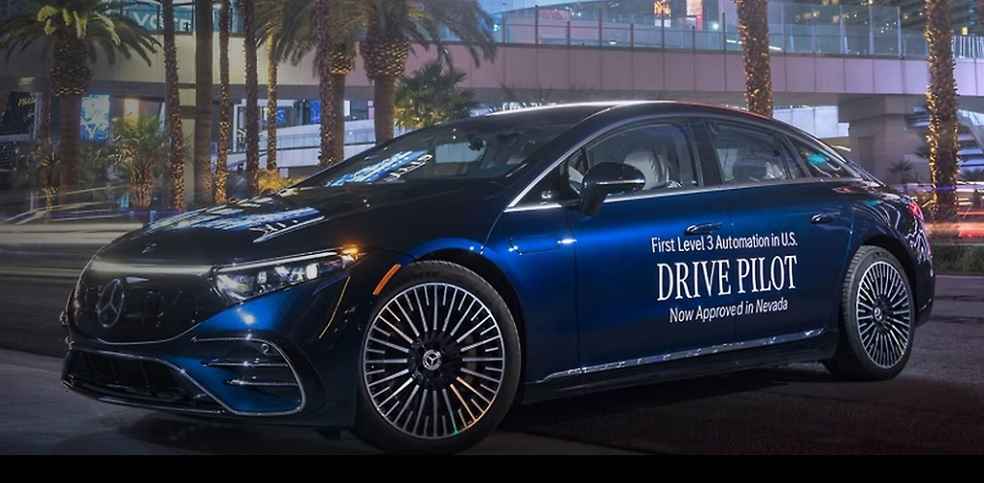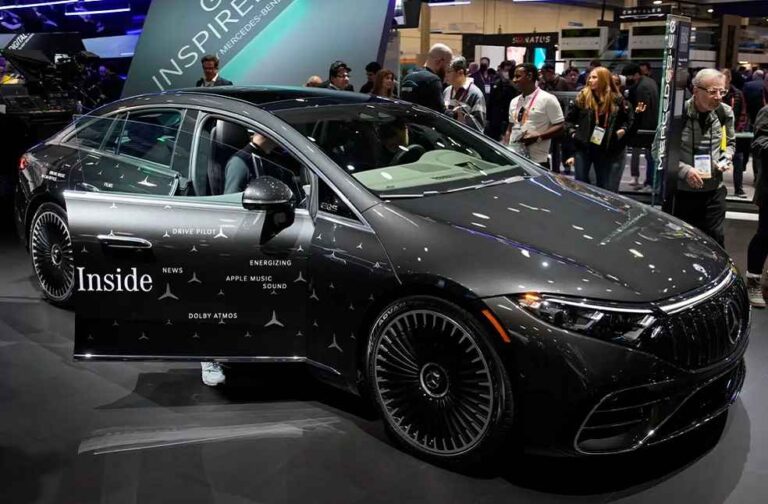Mercedes-Benz, has made a significant breakthrough in the autonomous vehicle arena by obtaining approval from the California Department of Motor Vehicles (DMV) to sell Mercedes ‘Level 3′ autonomous vehicles in the state. This pivotal decision marks the first time a car with an advanced driver assistance system (ADAS) that doesn’t mandate constant driver engagement has been approved for sale in America’s largest automotive market.
Dubbed “DRIVE PILOT,” Mercedes’ Level 3 autonomous system represents a departure from Level 2 systems like Tesla’s Autopilot. In a DRIVE PILOT equipped vehicle, drivers can legally disengage both hands and eyes from the driving process while the vehicle is in motion. This contrasts with Autopilot and Full Self-Driving (FSD, Level 2+ system), where the driver needs to maintain control over the car at all times. In essence, DRIVE PILOT’s Level 3 autonomy allows drivers the freedom to indulge in other activities such as reading or gaming via the vehicle’s infotainment system, as long as they remain alert and prepared to assume control if necessary.

The system does have some limitations. Although drivers can theoretically take their eyes off the road, they must always be primed to reassume control of the vehicle, which rules out activities like sleeping. Furthermore, as per Reuters, the California DMV has set certain restrictions. These include the system being operational only during daylight hours, only at speeds of up to 40 mph (64 km/h), and exclusively on select highways.
The autonomous feature could be particularly beneficial for commuters and is slated to be functional on the interstate highway connecting California and Nevada, where DRIVE PILOT has also obtained approval. Presently, it will be usable on highways in the Bay Area, Central Valley, Los Angeles, Sacramento, and San Diego.
“Mercedes-Benz DRIVE PILOT is the world’s only SAE Level 3 system with internationally valid type approval,” remarked Markus Schafer, Chief Technology Officer at Mercedes. “The certification by the authorities in California and in Nevada once again confirms that redundancy is the safe and thus the right approach.”
In response to concerns about accountability in the event of accidents, Mercedes has confirmed that it will accept legal liability for any accidents involving DRIVE PILOT. The automaker has integrated numerous safety measures to prevent misuse of the system, reinforcing its commitment to safety in the nascent sector of autonomous vehicles.
As part of its strategy to win over public confidence, Mercedes is seeking approval from all U.S. state regulatory bodies, including those without explicit restrictions on autonomous technology, before deploying its DRIVE PILOT system. The innovative system is currently available on the S-Class and the all-electric EQS models.
OBSERVATION: Automotive RADAR Market Set to Reach $10.06 Billion by 2028 Amid Safety Push






